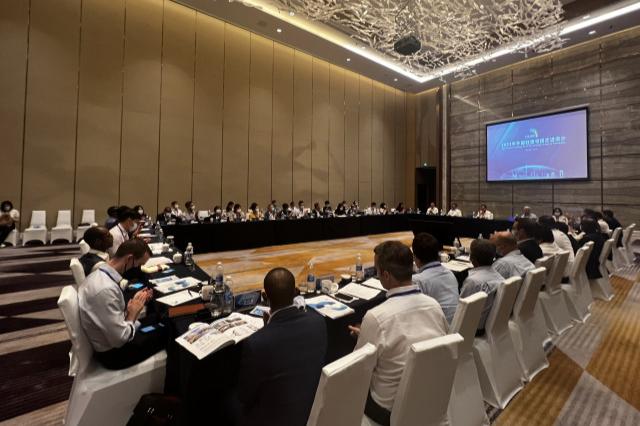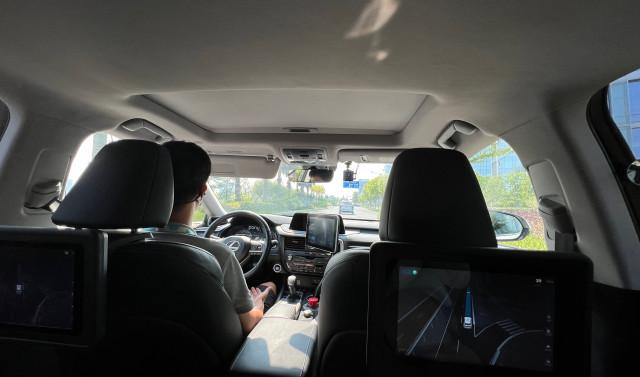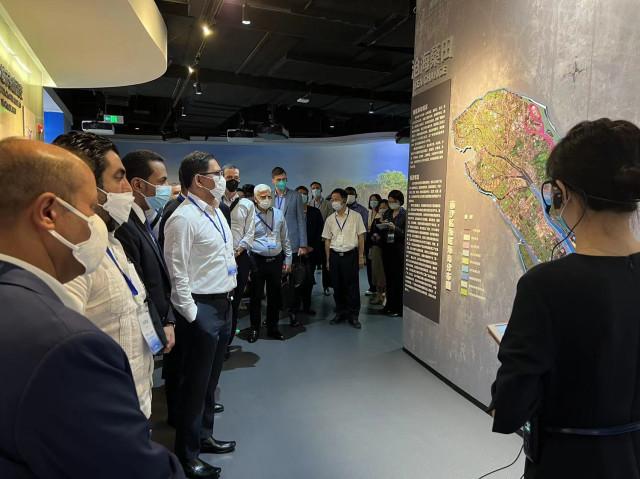Consuls General and consular staff of 30 foreign consulates general in Guangzhou visited Guangzhou’s Nansha district on September 9. Organized by Guangzhou Foreign Affairs Office, the tour aims to elaborate China’s latest plan and highlight the key industries in the district.
Lu Yixian, Party Secretary of Nansha district, addressed at the meeting, saying, “Located at the geographic center of the Guangdong-Hong Kong-Macao Greater Bay Area, Nansha has been positioned as a major strategy platform with a global perspective, based on collaboration with Hong Kong and Macao and supported by a series of key policies.”
According to Lu, the largest industry in Nansha is the automobile manufacturing industry, whose annual output value exceeded 150 billion RMB in 2021. In addition, a wide range of emerging industries are boosting Nansha’s development, such as new energy vehicles, new generation information technology, artificial intelligence, marine technology, and commercial aerospace.
Members of the Consular Corps are interested in Nansha’s policies, especially in the shipping and finance industries. Government officers of related departments answered the most frequently asked questions at the opinions exchanging session.
What are the highlights of Nansha’s Policies?
Zhang Jiamao, Head of the Bureau of Development and Reform in Nansha District, said that efforts will be made to foster high-tech industries including levying enterprise income tax at a reduced rate of 15 percent for enterprises in sectors encouraged. In terms of financial support from 2022 to 2024,the central governments will allocate 10 billion RMB to Nansha district every year to raise the limits of the local government debts.
How does the shipping industry develop in Nansha?
Xie Xiao hui, Head of Nansha Bureau of Commerce, said that the Nansha port area of Guangzhou Port is the largest single port in southern China, which handled 17.66 million TEUs in 2021. The Nansha port area also serves as an integrated part of the multiple transportation systems, including sea, air, road, and railway connections.
The support for the financial sector in Nansha
Liao Xiaosheng, Head of Nansha Bureau of Finance, said that to improve the business environment,Nanshan district has introduced specific financial support policies since 2017. “We have given strong support in many aspects,such as starting businesses,business development,financial innovation, and events organization. By the end of 2021, 134 key financial enterprises have benefited from these financial policies. In total, nearly 4 billion RMB have been granted, which has strengthened this sector.”
(Pony.ai. driverless taxi)
Marshall Louis M. Alferez, Consul General of the Republic of the Philippines in Guangzhou, said on behalf of the Consular Corps of Guangzhou that they were interested in this tour including learning more about the unique advances that the district has made, such as the first ever Digital Service Trade Platform in China, the groundbreaking self-driving technology of Pony.ai, and the ambitious Nansha Harbor Phase II, which is the biggest comprehensive harbor in south China that will provide several duty-free zones and cross-border e-commerce platforms.
(Digital Service Trade Platform exhibition hall)
“It would be interesting to learn more about Nansha District positioning in the Greater Bay Area and how it intends to maximize its immense potential for openness and connectivity with the Asia-Pacific region and the rest of the world,” he said.
(Nansha Planning Exhibition Hall)
Diyar Khan, Consul General of the Islamic Republic of Pakistan in Guangzhou, believed that with the support of the central government, the provincial government, and Guangzhou municipal government, Nansha is the land of investment opportunities. “Nansha has a very well-developed infrastructure and transportation and a good environment for any companies who want to invest here, and I will strongly recommend Nansha to Pakistani companies who are interested in investment in China,” said Diyar Khan.
Andrei Popov, Consul General of the Republic of Belarus in Guangzhou, was impressed with the clear vision that Nansha leadership has for implementing those ambitious tasks, supporting science and technology, innovative development, and human resources. He was confident that the first Europe-bound train from Nansha Port Railway, which opened to traffic in May this year, would boost international trade despite increasing logistic costs and other constraints, “The China-Europe Railway Express is a huge alternative you can rely on and further boost trade between countries like mine, for example, Belarus being situated in the core of this huge Eurasian space.”



